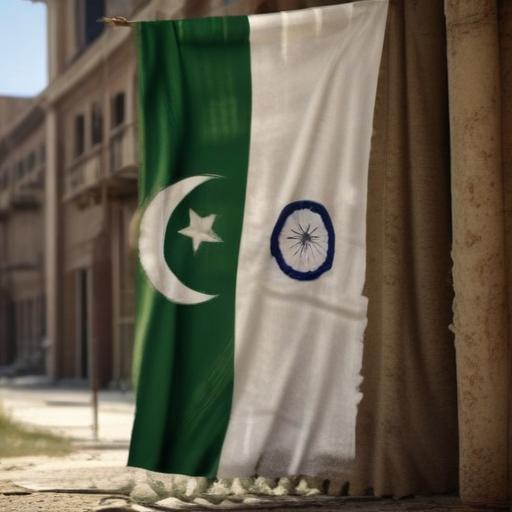Tensions between India and Pakistan have escalated sharply, with hostile rhetoric continuing for a second day following India’s military strikes in Punjab and areas of Pakistan-administered Kashmir. This recent escalation has raised international concern amid fears of a wider conflict.
The cross-border skirmishes come after India launched “Operation Sindoor,” targeting what it claims are sites associated with militant groups linked to a deadly attack that killed 26 Indian tourists in April. According to an Indian military spokesperson, the recent strikes have resulted in at least 31 deaths, including that of a young girl, and left dozens more wounded. India asserts that its strikes were precise and aimed solely at “terrorist infrastructure,” specifically focusing on Lashkar-e-Tayyiba and Jaish-e-Mohammed. In contrast, Pakistan reported civilian casualties and destruction of mosques, though these claims are yet to be independently verified.
In a swift response, Pakistan has alleged it downed several Indian aircraft, including advanced Rafales. A high-ranking French intelligence official confirmed reports of one Rafale being shot down. Additionally, Pakistan claims to have intercepted multiple drones in its airspace, responding to what they describe as provocations from India.
As fighting continues along the Line of Control, authorities in Indian-administered Kashmir have advised residents to evacuate high-risk areas. Flights have also been disrupted, as international airlines reevaluate their routes in light of the ongoing hostilities.
The roots of this conflict trace back to the territorial disputes over Kashmir since the partition of British India in 1947. The heavily militarized region has been a continual flashpoint for conflict, with both nations holding firm claims over it.
In light of the rising tensions, various international leaders and organizations are calling for restraint and dialogue to avoid further escalation. Prominent voices like Pakistani Nobel Peace Prize laureate Malala Yousafzai have advocated for peace, emphasizing the need for diplomatic solutions to the conflict.
While the situation remains precarious, diplomatic interventions from global players, including the United States, suggest that there is hope for a resolution. The prominent acknowledgment by countries such as China, Russia, and others for both sides to de-escalate is a vital step toward stabilizing the region and preventing further loss of life.
